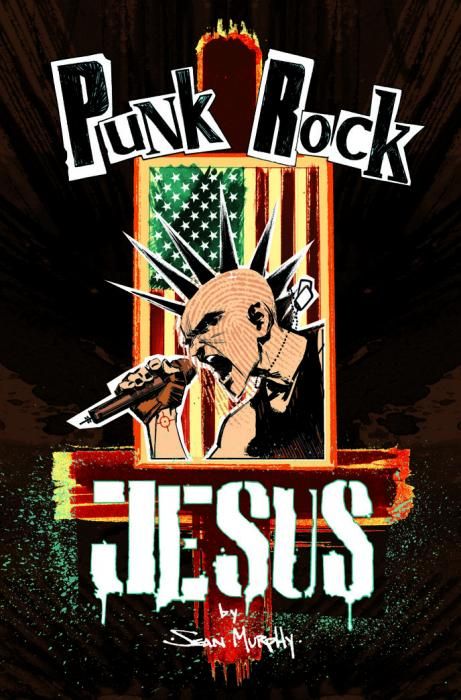"Punk Rock Jesus" #1, written and drawn by Sean Murphy, is every bit as audacious as its title suggests. But it's not just audacious -- it's an intelligent and satirical comic fantastically put together. Indeed, there's not even a hint in this issue of the sneering that the title implies.
One of the things that makes this comic such a surprise hit is that the title character barely even appears in it. The series concept -- a clone of Jesus Christ stars in his own reality show -- provides readers with a single-line pitch that, for all its offbeat candour, is so complete that anyone could pick up on it and produce something that reads like a Garth Ennis comic. Yet, in Murphy's hands, the high concept offers only a loose guide to the events that unfold. As it turns out, the opening issue is a far more complex look at what such an attempt might entail, not just from a practical point of view, but from a legal, religious and societal perspective, right down to how individuals might be affected.
There's no character in here who feels off-the-shelf, and Murphy is careful to give the main cast members depth and complication. Similarly, the futuristic (but not too futuristic) society takes elements of the celebrity-obsessed, media-saturated present to a logical extension. In a world where we've seen a former boy band member eat a Kangaroo anus live on TV (and if you haven't seen "I'm a Celebrity, Get Me Out of Here," you're not missing out) the events of this series aren't hard to believe.
It's a surprisingly dense work packed with exposition, character and events, but it really works. By the end of the first issue you'll feel like you understand the world of the series and you'll be intrigued by the unexpected twist the story takes. Again, despite the comic having a high concept that sounds predictable, Murphy finds a way to take path that you couldn't have guessed.
Obviously, the art is great, just like any Sean Murphy-pencilled book -- hugely detailed, and full of nuances and flourishes that bring every panel to life with equal care -- but there's more to the aesthetic experience of reading than the art alone. Printed in black and white, and on Vertigo's lower-quality paper stock, it reads like something rebellious, something created outside the establishment. You'll be checking your fingers for ink by the end of it.
Ultimately, this is a comic destined for cult success at the absolute least, and probably greater. With its dark sense of humour and an uncompromising approach to somewhat subversive material, it feels like an underground hit that belongs to an earlier era. In more ways than one, this is a legend in the making. Definitely give it a shot, if only so you can say you were there when it happened.

